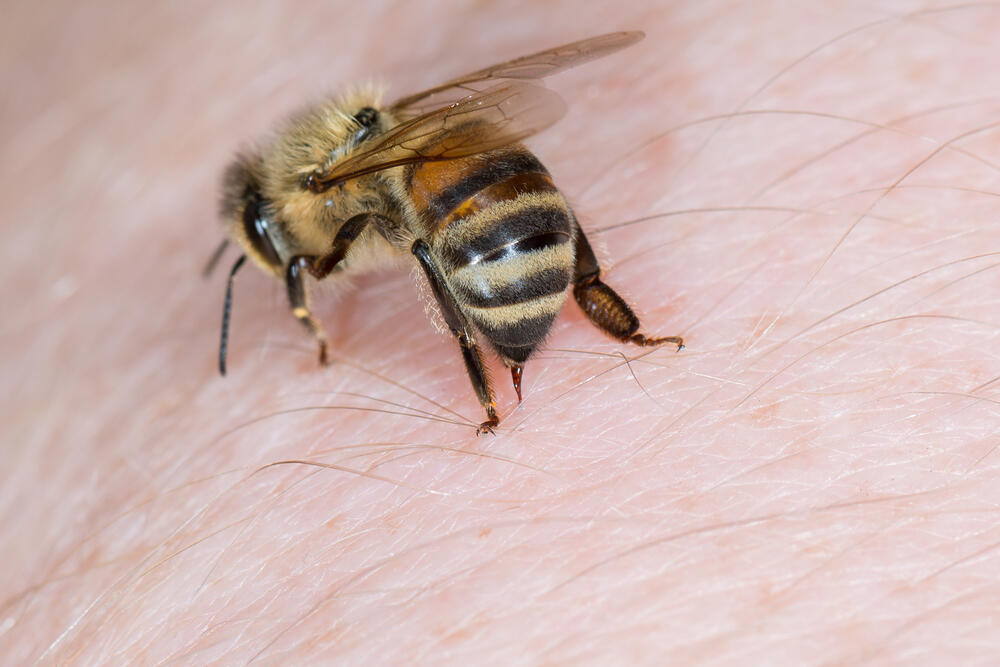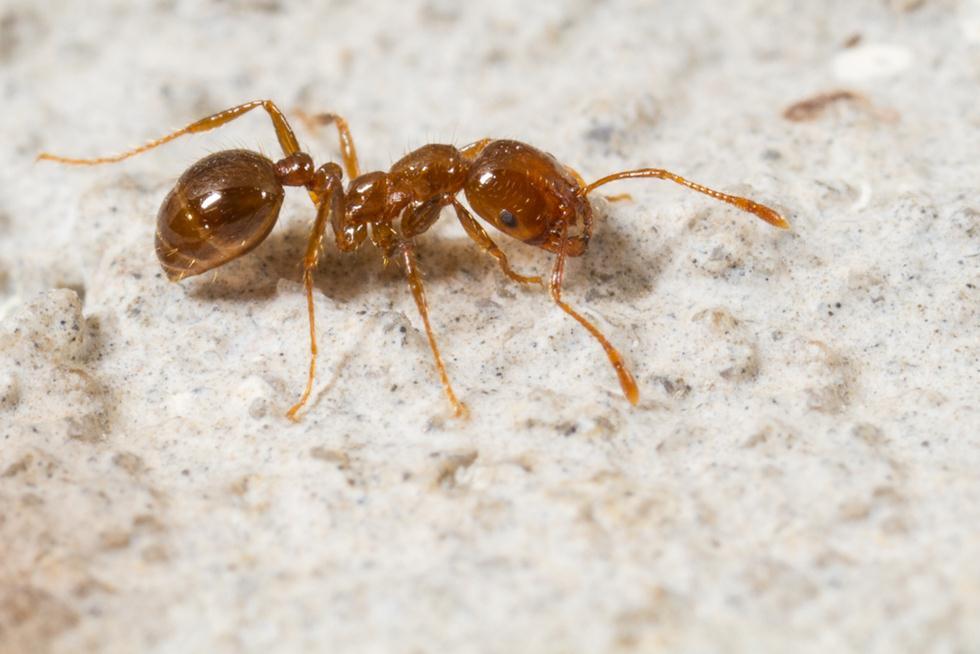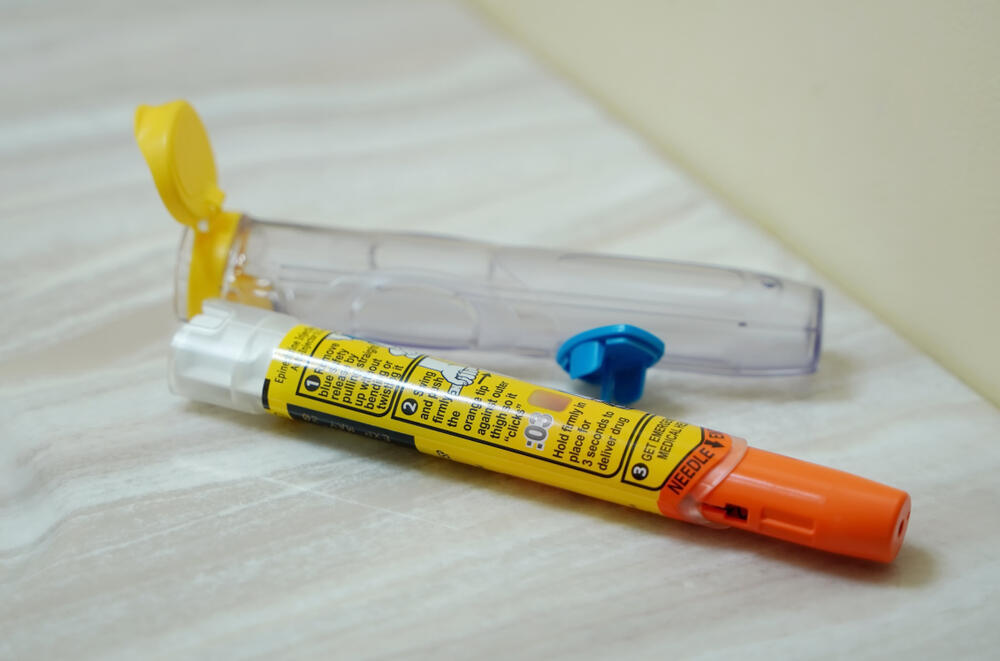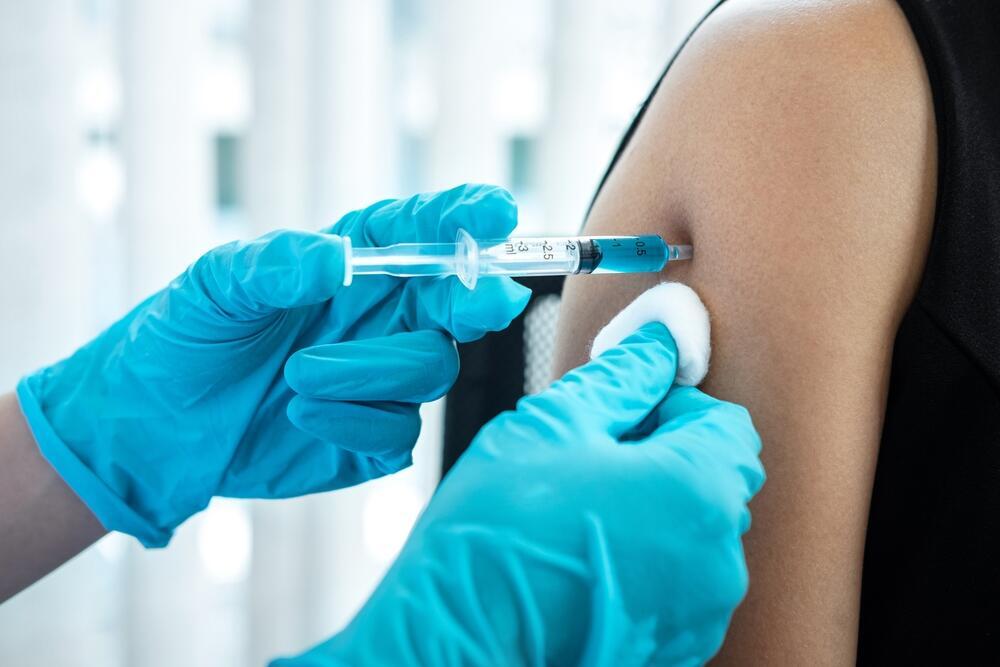Getting your Trinity Audio player ready...
We all know that the bee's product, honey is one of the main symbols of Rosh Hashanah, but what people may not know is what happens if we meet the bee in nature. Its sting can cause some of us to have allergic reactions, and even anaphylaxis when the immune system releases a flood of chemicals that can cause the body to go into shock.
Unfortunately, the bee is not alone. There are several other common insects (from the Vespidae family, found abundantly in hotter areas like Israel), known to cause allergic reactions such as the honey bee, the wasp, the hornet and also the fire ant, which is considered a relatively new invader species in Israel.
Speaking about bites, what about reactions to other insect bites like spiders, or even fleas? In theory, any insect may, whether it stings or bites, cause an allergic reaction. However, these are exceptional and extremely rare cases. Most of the time, an insect bite will cause us a mild reaction and manageable pain, which will manifest itself in swelling and sensitivity in the area of the bite, but this is not an allergic reaction, only a limited reaction to the insect's venom.
Before we move on, a reassuring message. For most of us, if we are stung by a bee, wasp, or bee, we will experience localized pain, and perhaps even widespread pain. We will suffer from swelling of up to a few centimeters at the site of the bite, and possibly also itching and redness. A few hours after the bite, the peak of the reaction will come, but then, within a day or two, the physical symptoms will gradually disappear.
A minority of people who are stung will indeed react in a more severe way with a local reaction, but not one that is defined as an allergic reaction. This is usually a larger swelling in the area of the bite, stiffness and redness that will last for a few days. It is indeed painful and unpleasant, but it is not a life-threatening event.
On the other hand, a small percentage of those bitten or stung (according to the estimate, between two and three percent of the population), will suffer from an allergic reaction and even an anaphylactic reaction which may be life-threatening. This is a generalized, rapidly evolving, multi-systemic allergic reaction, which starts within a few minutes to half an hour, or at most up to an hour after the bite. It may manifest itself in a widespread skin rash (not only in the area near the bite), swelling of the eyelids and/or other body functions, including coughing, difficulty breathing, hoarseness, vomiting, and even dizziness, fainting.
The fire ant
The fire ant is a new invader species in Israel in the last decade. In recent years, cases of allergic reactions to the fire ant have begun to appear in Israel. The allergy examination process is similar to the one for an allergy to bees. On the other hand, the vaccination protocol for people with a fire ant allergy is slightly different, although it also requires vaccinations for five years.
Is it possible to know in advance who is allergic?
As a rule, an allergic reaction will not appear at the first bite. The body needs to be exposed to the insect's venom, develop antibodies, and only then in the next bite, will an allergic reaction develop. The surprising thing is that it is impossible to predict in advance who will develop an allergic reaction to the sting of bumblebees or fire ants. There is no blood test or other method for predicting the body's reaction. Furthermore, the mere fact that a person has been stung repeatedly in the past, and did not develop an allergic reaction, does not guarantee that such a reaction will not develop in the next bite.
The main immediate treatment for a multisystemic anaphylactic reaction is the administration of adrenaline (also called epinephrine) through an epEpiPenipen injection. This is an intramuscular injection, either by independently or by another person whether a bystander or medical personnel who are called to the scene. Anyone who knows to have had an allergic reaction to an insect sting from the bee family must always carry an EpiPen, since they are at high risk of developing a repeated allergic reaction the next time they are bitten.
Treatment with vaccines (Immunotherapy)
Medicine has good news. In the case of an allergy to bumblebee and fire ant stings, immunotherapy can cure and prevent the recurrence of allergic reactions, in case of repeated stings in the future.
In the first step, it is necessary to identify the suspected allergen as the cause of the reaction. The agent identification process is carried out in a special allergy clinic, using skin tests, which includes a subcutaneous injection of small amounts of Vespids venom. After identifying the cause of the allergic reaction, the patient can be referred to immunotherapy.
This is a process in which the patient is injected with increasing doses of the venom which is the allergy agent, up to an amount equivalent to two bee stings, called a "maintenance dose" which the patient continues to receive every few weeks (between one and three months) for five years. In this process, the body learns not to react to the allergen.
The process of increasing the dose occurs gradually. From the beginning of the process, until reaching the "maintenance dose", it is necessary to arrive once a week at the allergy clinic to receive the vaccine. This process lasts between four and six months, and only later, the interval between vaccinations can be increased.
There is another option; to shorten the process of increasing the dose, with the help of an accelerated protocol that usually lasts three days (assuming there are no irregular reactions). In the accelerated treatment protocol, the patient frequents the allergy clinic for several consecutive days, during which he receives several injections each day, with the aim of reaching the maintenance dose in a short time.
When the patient has reached the maintenance dose, either in the normal process, or in the accelerated protocol, they are protected against future allergic reactions, in case of another sting. After five years of treatment, from the moment a maintenance dose is reached, it is customary to stop the vaccinations, assuming that the body has formed a lasting protection against allergic reactions in the future.
According to the professional literature and clinical experience, the vaccines provide a very high level of protection against an allergic reaction in the next bite. The entire process, starting with skin tests and ending with vaccinations, is included in the healthcare basket ("Sal Briut"), which includes all the services, medications, supplies and medical equipment that one is entitled to receive. The process is performed exclusively in allergy and clinical immunology clinics in hospitals, using allergy and clinical immunology specialists only.
Availability of inquiry and treatment
It is crucial to be examined by a doctor who specializes in allergy and clinical immunology for those who have developed an allergic reaction following an insect bite. These are life-saving procedures, which are included in the healthcare basket.
Still, there are two caveats: first, the materials for the skin tests and vaccines obtained from the extraction of insect venom, have become very expensive in recent years, without a corresponding adjustment in the framework of the basket, and therefore their availability has decreased significantly. They are not available to the entire allergic population.
 Dr. Idit Lachover-Roth
Dr. Idit Lachover-Roth
And the second caveat is that there are medical centers in Israel that do not have any allergist-immunology specialists at all or do not have an allergy-immunology unit, despite their great importance. The unfortunate result is that in Israel people live with insect allergies, without an adequate medical response. Remember, until one meets with the allergy and treatment specialist, it is wise for anyone who experiences an allergic reaction to insects, to carry an unexpired EpiPen injection at all times.
- Dr. Idit Lachover-Roth is an allergy specialist, a board member of the Israel Association of Allergy and Clinical Immunology (IAACI).
Get the Ynetnews app on your smartphone:





